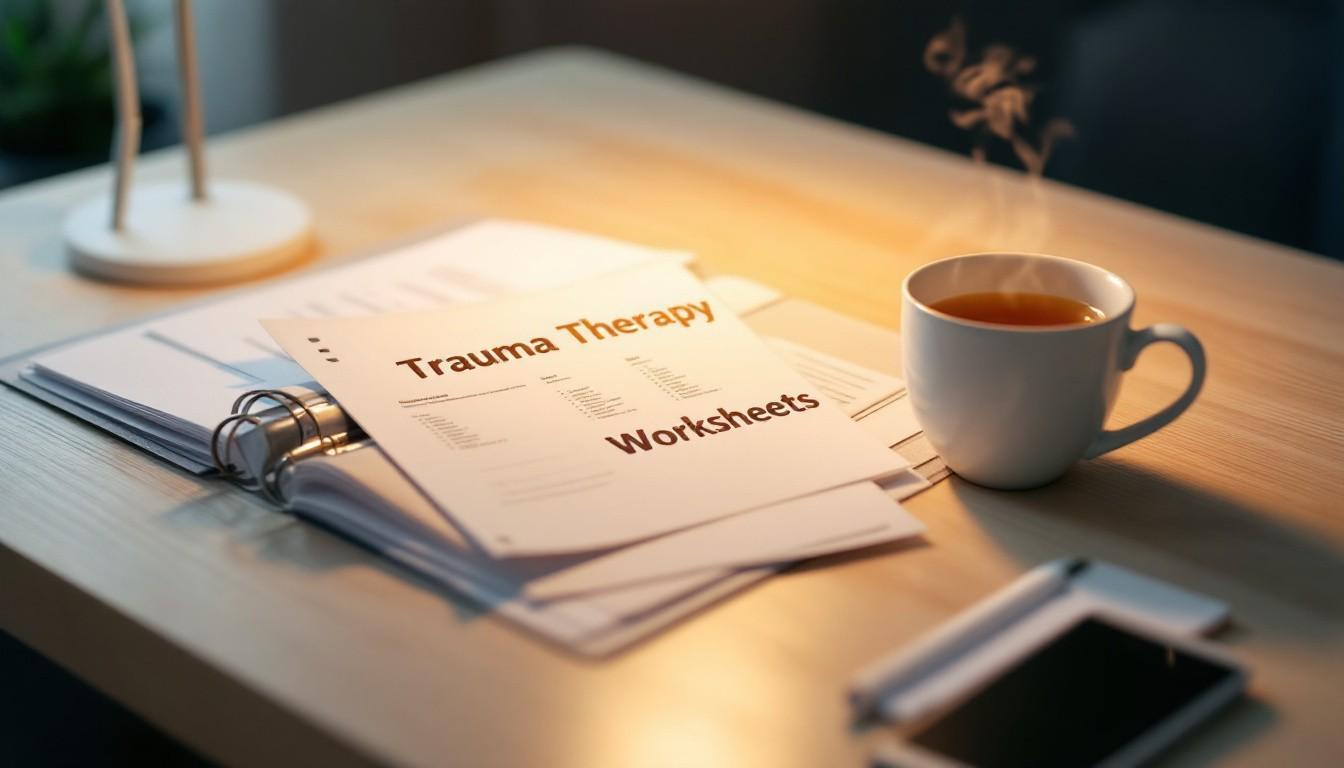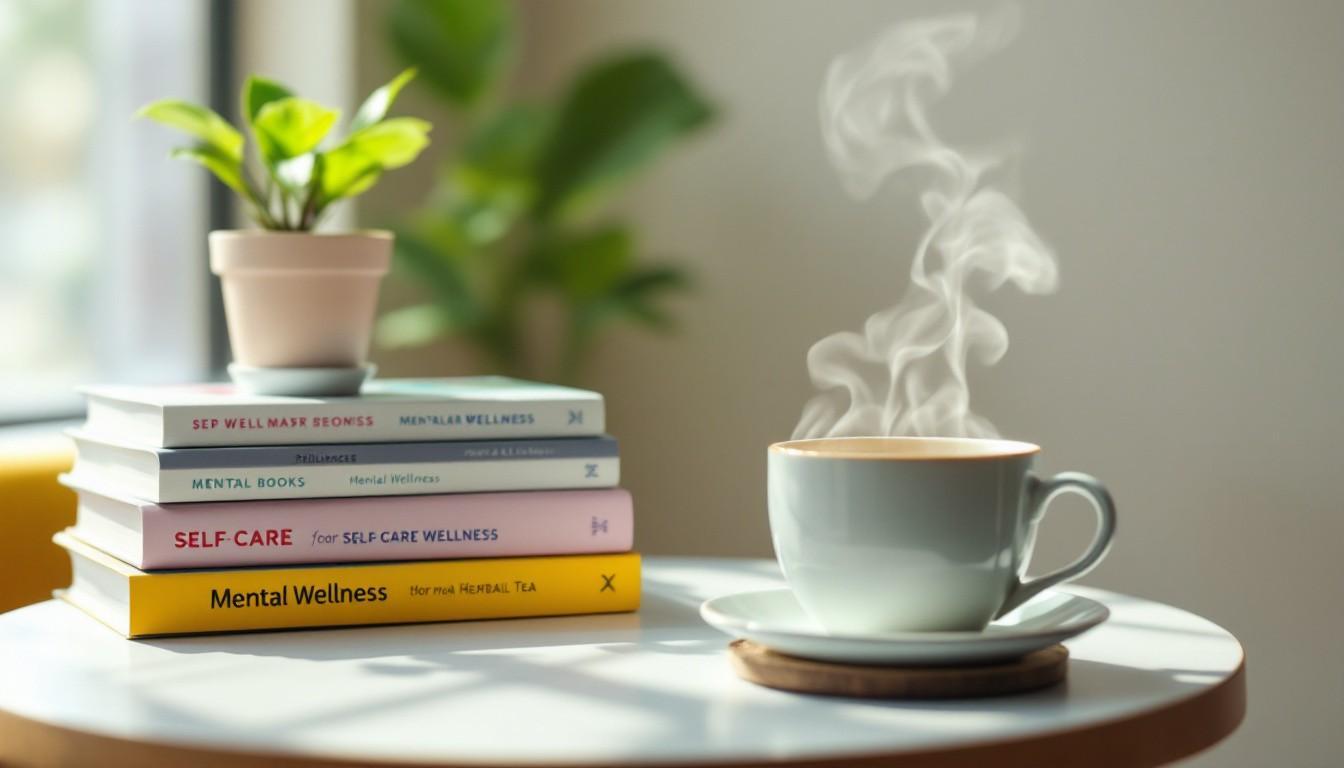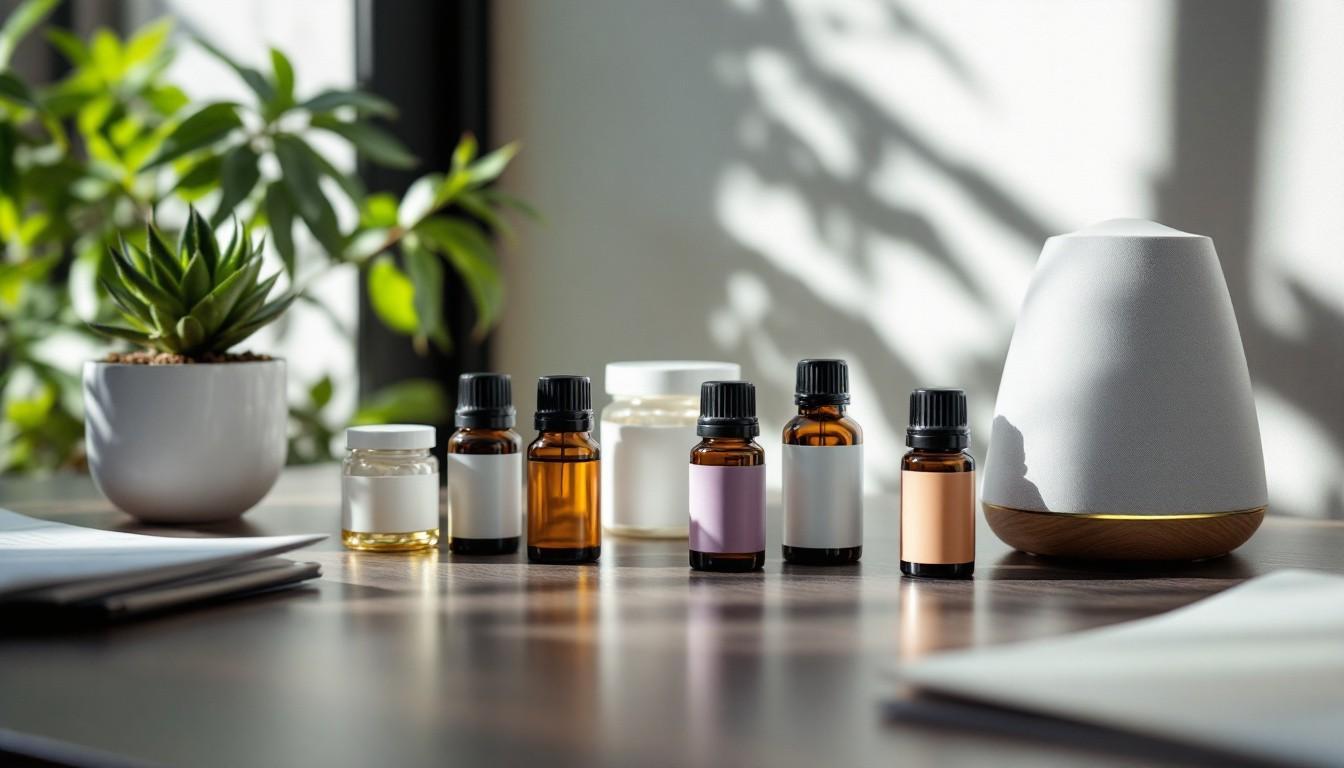Mental health support has become more accessible than ever, with countless mental wellness brands offering innovative solutions for every need and budget.
We at Devine Interventions understand that choosing the right tools can feel overwhelming when you’re already struggling with your mental health.
This guide breaks down the top-rated apps, services, and products that actually make a difference in people’s daily lives.
Which Digital Tools Actually Work for Mental Health?
Mental wellness apps have exploded in popularity, but most people waste time on platforms that promise everything and deliver little. The research shows clear winners: Headspace leads meditation apps with structured programs that have been studied for their effects on mental health and economic behavior. BetterHelp dominates therapy platforms by matching users with licensed therapists within 24 hours, while Talkspace offers comprehensive services from individual to couples therapy at $69-120 weekly. These aren’t feel-good apps – they’re backed by real data and professional oversight.
Apps That Replace Nothing But Add Everything
Meditation apps work best as supplements, not replacements for professional care. Headspace and Calm provide structured programs that fit busy schedules, with short sessions that deliver immediate stress relief. Breathwrk specializes in anxiety management through specific techniques, while Worry Watch uses cognitive behavioral therapy methods to track thought patterns. The key difference: these apps teach specific skills rather than offer generic wellness advice.
Professional Platforms Worth Your Money
BetterHelp and Talkspace have revolutionized access to real therapy, not chatbots that pretend to be therapists. BetterHelp’s $65-100 weekly cost includes unlimited messages between sessions, while Talkspace accepts insurance and offers psychiatry services alongside therapy. Amwell works with over 40 insurance providers and makes professional help accessible at $99 per session. These platforms connect you with actual licensed professionals who can provide diagnosis and treatment – something wellness apps simply cannot do.
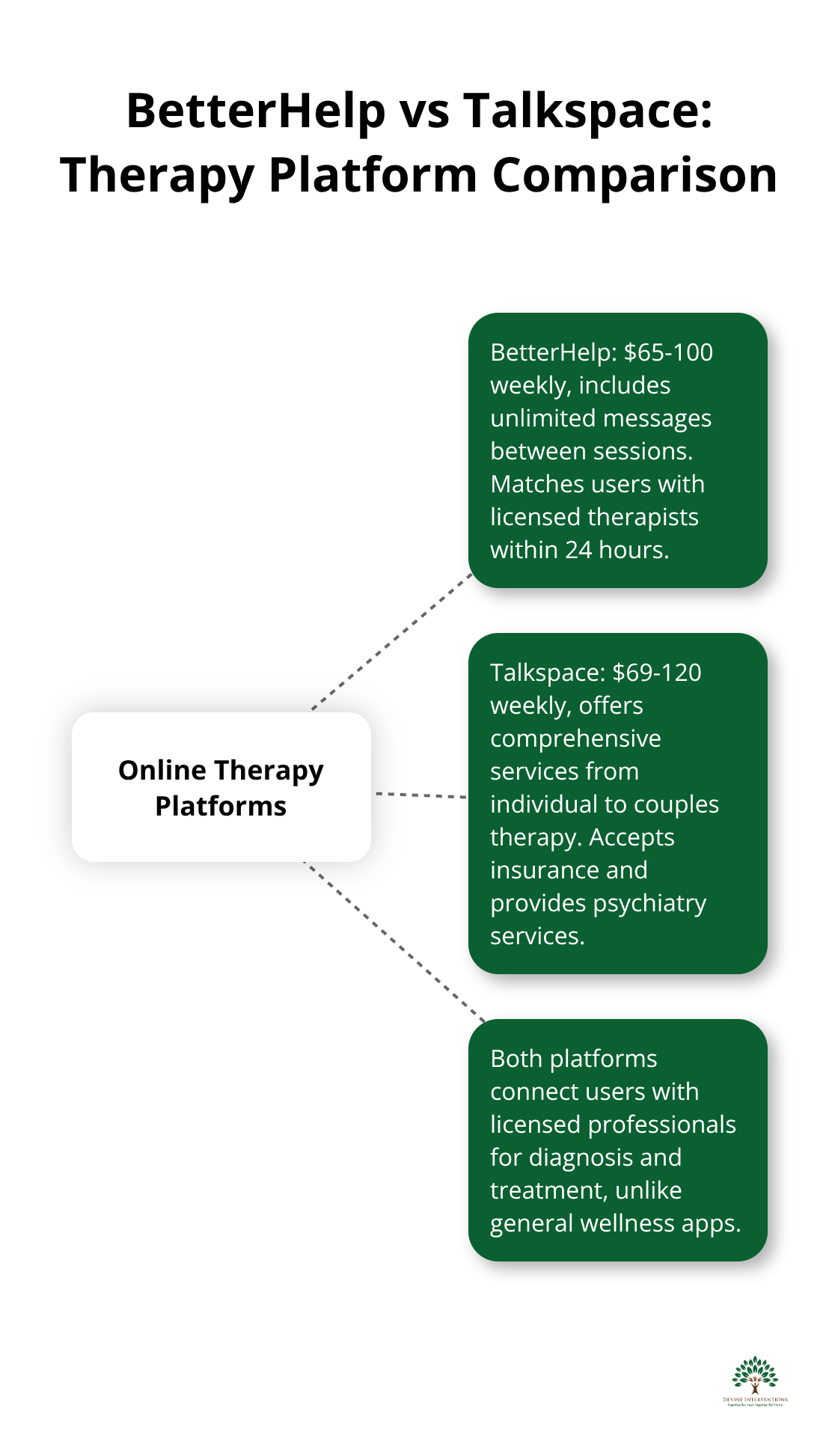
Tools That Actually Track What Matters
Mood data only helps when it leads to action. Apps like Daylio provide simple daily check-ins that reveal patterns over weeks and months, while mood data becomes valuable during therapy sessions or medical appointments. The most effective users spend less than two minutes daily to log moods but review monthly patterns with their healthcare providers. Skip apps that require extensive journal entries – consistency matters more than detail when you build awareness of your mental health patterns.
When Digital Tools Hit Their Limits
Apps excel at skill-building and daily support, but they cannot replace professional diagnosis or crisis intervention (especially for severe depression or anxiety). Most successful users combine digital tools with traditional therapy sessions. The next step involves choosing physical products and services that complement your digital wellness routine.
What Physical Products Support Mental Wellness
Subscription boxes like TheraBox deliver curated self-care items monthly for $34.99, while Mindful Souls focuses specifically on anxiety relief products at $29.95 per box. These services work because they remove decision fatigue from self-care routines. Research from the Journal of Happiness Studies shows that physical self-care rituals increase happiness by 25%, but only when people practice them consistently. Most wellness boxes fail because they include random items instead of evidence-based tools. The winners provide items like aromatherapy oils, stress balls, and journals that support specific therapeutic techniques.
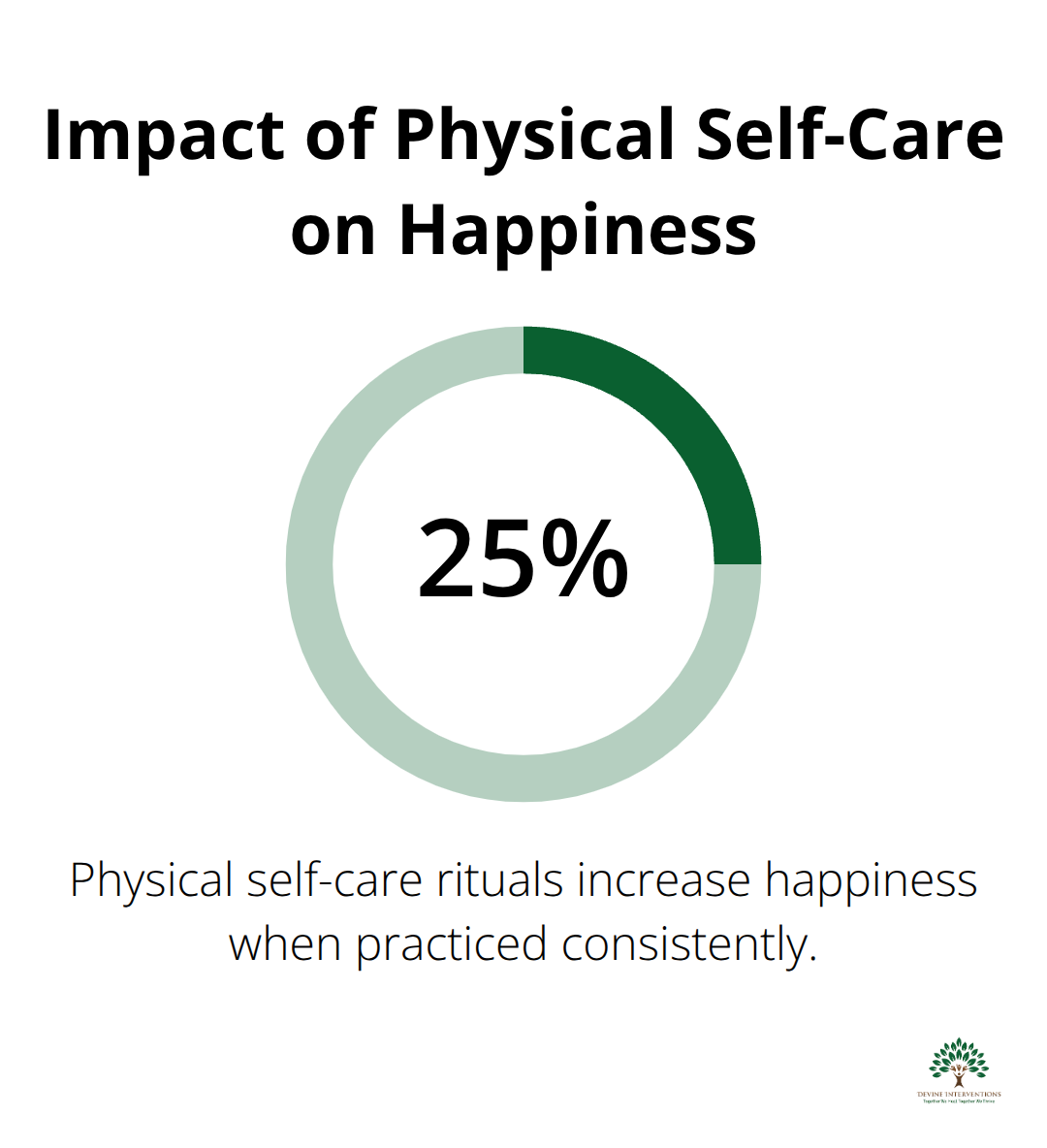
Books That Actually Change Behavior
Mental health books only work when they include actionable exercises, not just theory. Cognitive Behavioral Therapy Workbook by William Knaus provides worksheets that 70% of users complete, while The Anxiety and Phobia Workbook by Edmund Bourne offers step-by-step exposure therapy techniques. These books cost $15-25 but deliver structured programs comparable to therapy sessions. Skip memoirs and inspirational books – they feel good but change nothing. The most effective readers work through one chapter weekly and practice exercises daily (they treat books as treatment tools rather than casual reading).
Professional Services That Deliver Results
Traditional therapy remains the gold standard, with cognitive behavioral therapy showing proven effectiveness for anxiety and depression according to multiple clinical studies. We at Devine Interventions combine evidence-based practices with comprehensive case management, serving hundreds of clients through individual therapy, group sessions, and intensive outpatient programs. Our bilingual therapists and culturally responsive approaches address diverse community needs while maintaining the highest clinical standards. Local therapy costs $100-200 per session, but the investment pays dividends through improved relationships, work performance, and overall life satisfaction that apps and books cannot provide.
Self-Care Products That Actually Work
Aromatherapy oils like lavender and bergamot have scientifically backed stress-relief properties, while adaptogens such as ashwagandha can decrease morning cortisol levels according to recent studies. Light therapy boxes help combat seasonal depression (they cost $50-200 but provide measurable mood improvements). Weighted blankets reduce anxiety for many users, though results vary by individual. Physical activities like yoga can help release tension and promote body awareness. The key lies in choosing products that complement your existing treatment plan rather than replace professional care.
Your choice of mental wellness products should align with your specific needs and treatment goals, which makes professional assessment even more important.
Which Mental Wellness Brand Fits Your Situation
Most people choose mental wellness brands based on marketing claims rather than their actual needs, which explains why 70% of users discontinue use within the first 100 days. Start with your primary concern: anxiety, depression, relationship issues, or substance use. Anxiety sufferers benefit most from CBT-based platforms like BetterHelp or specific tools like Breathwrk, while depression often requires professional therapy combined with mood tracking apps like Daylio. Couples need specialized platforms like Talkspace that offer relationship counseling, not individual therapy apps.
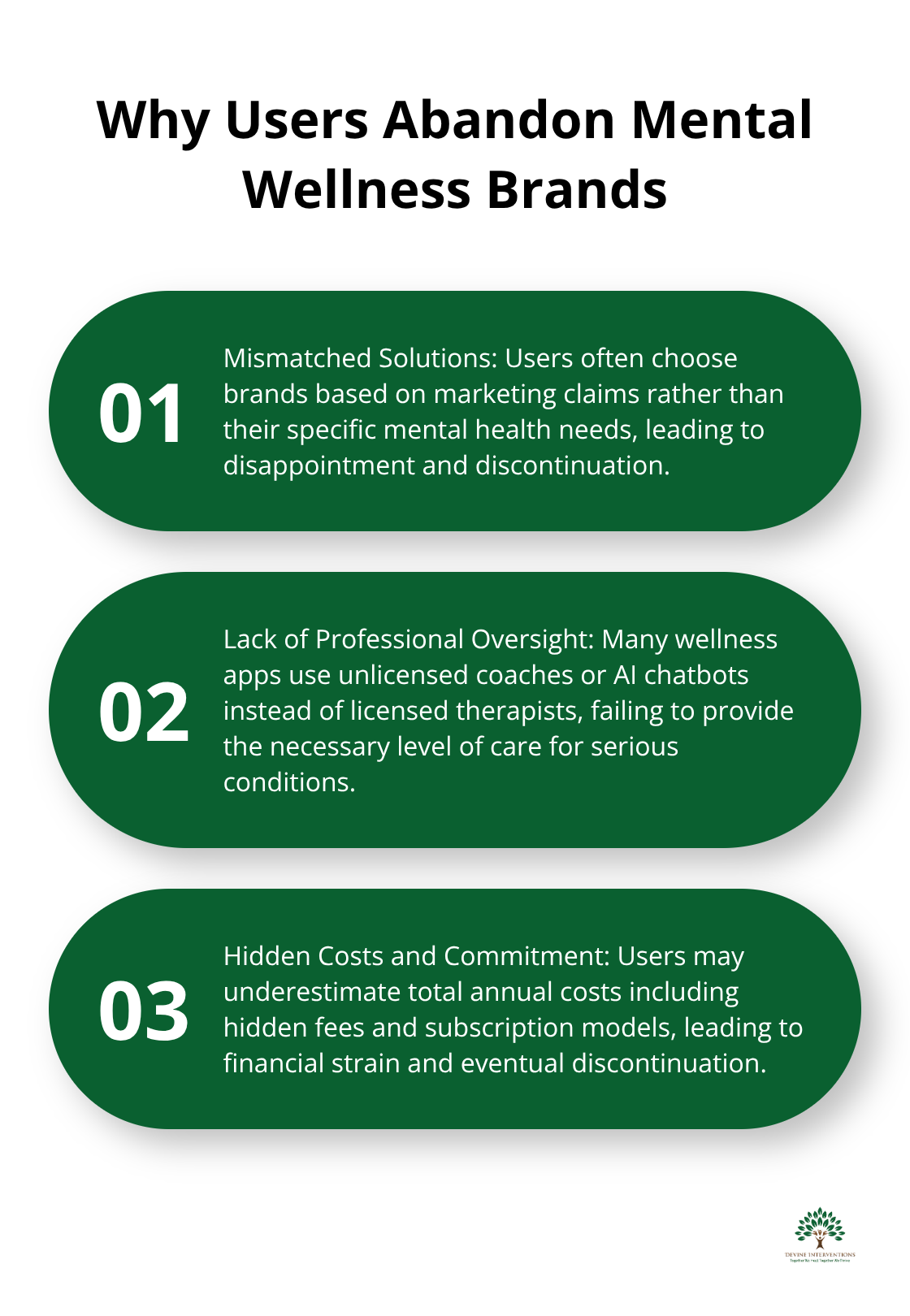
Match Your Specific Mental Health Condition
People with substance use disorders require integrated care that addresses both addiction and underlying mental health conditions. Traditional apps cannot provide the comprehensive approach needed for complex cases. Professional services that combine therapy, medication management, and case management deliver better outcomes for serious conditions. Seasonal depression responds well to light therapy boxes ($50-200) combined with professional support, while panic disorders need immediate coping strategies that apps like Breathwrk provide alongside therapy sessions.
Professional Standards Matter More Than Reviews
Skip brands that use unlicensed coaches instead of therapists, regardless of positive testimonials. Licensed therapists complete years of supervised training and maintain continuing education requirements, while coaches need minimal certification. Platforms like BetterHelp and Talkspace verify licensing status, but many wellness apps use life coaches who cannot diagnose or treat mental health conditions. Check for HIPAA compliance, professional oversight, and evidence-based treatment methods. Apps that promise quick fixes or use AI chatbots as primary treatment should raise immediate red flags.
Cost Analysis Beyond Monthly Fees
Calculate total annual costs including hidden fees, session limits, and additional features. BetterHelp costs $260-400 monthly but includes unlimited messaging, while traditional therapy averages $150 per session with better insurance coverage. Many insurance plans cover licensed therapy but exclude app-based services (making professional care potentially cheaper long-term). Free apps like Headspace offer limited content before requiring $70 annual subscriptions. Factor in your commitment level: subscription models capitalize on principles of inertia, loss aversion, and commitment bias to encourage long-term retention.
Accessibility and Cultural Considerations
Language barriers and cultural differences affect treatment success significantly. Some platforms offer bilingual services, while others focus primarily on English-speaking users. Rural areas may have limited internet connectivity that affects video therapy sessions. Physical disabilities require platforms with accessibility features like screen readers or voice commands. Age-appropriate interfaces matter for teens and older adults who may struggle with complex app navigation (simple designs increase completion rates by 35%). Consider starting a 30-day mental wellness challenge to test different approaches before committing to expensive platforms.
Final Thoughts
Mental wellness brands offer powerful tools for your mental health, but success depends on how well you match the right solution to your specific needs. BetterHelp and Talkspace excel at connections with licensed therapists, while Headspace and Calm provide structured mindfulness programs. Subscription boxes like TheraBox deliver consistent self-care support, and professional services remain the gold standard for serious conditions.
Apps and products work best as supplements to professional care, not replacements for it. The 70% of users who abandon mental wellness platforms within 100 days typically choose based on hype rather than their actual needs (anxiety responds well to CBT-based apps, depression requires professional oversight, and complex conditions need comprehensive treatment approaches). We at Devine Interventions understand that mental health options can feel overwhelming when you need help most.
Your mental health deserves professional attention that goes beyond apps and subscription boxes. While mental wellness brands provide valuable daily support, comprehensive care creates lasting change through personalized treatment plans and genuine therapeutic relationships. Professional therapy addresses root causes rather than just symptoms, which makes all the difference in your recovery journey.



